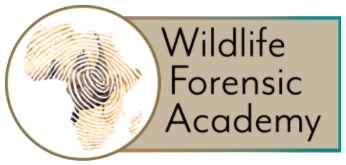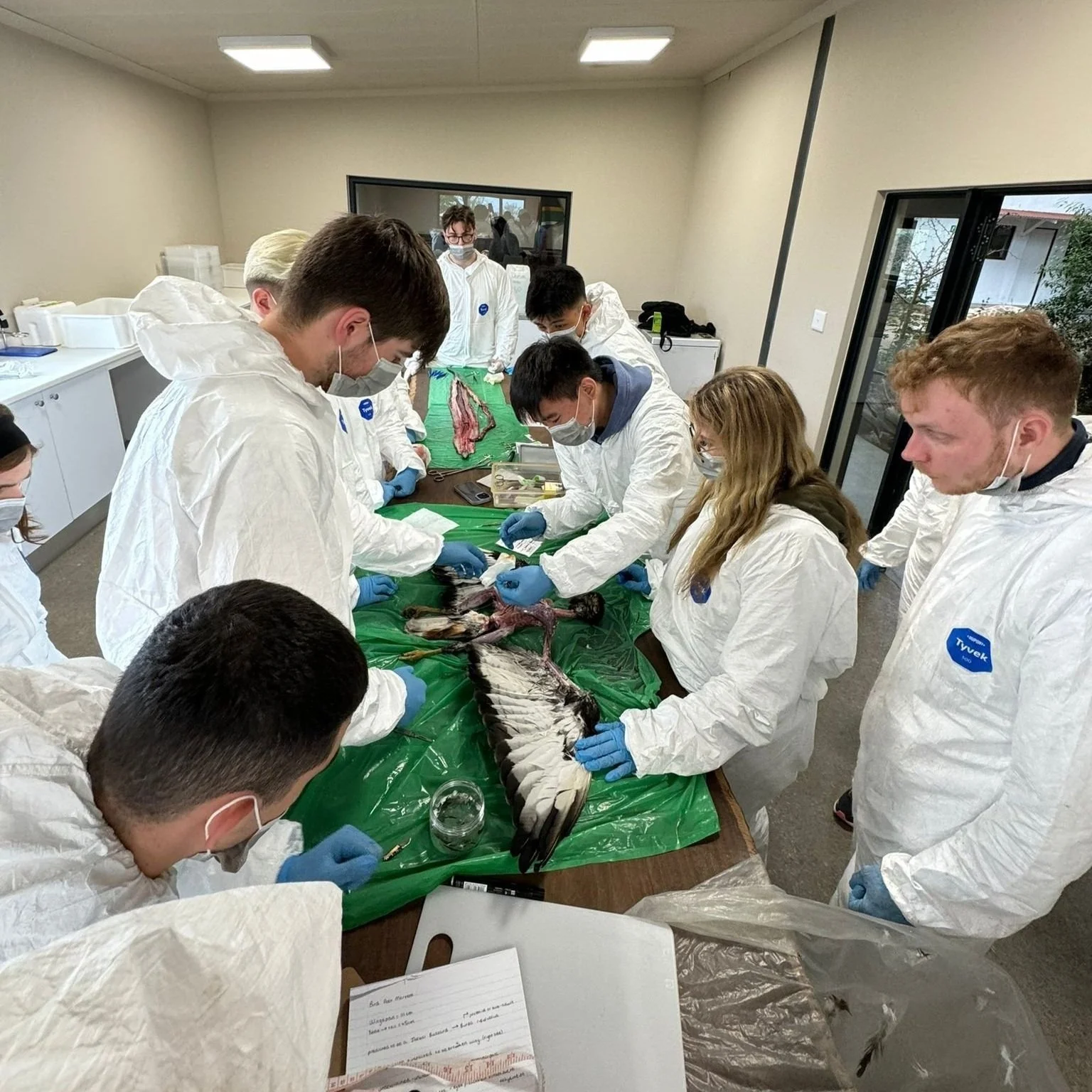
WILDLIFE AND WICKED PROBLEMS MASTERCLASS
Building multidisciplinary solutions for the biggest challenges in conservation
Wildlife crime is a far-reaching, wicked problem. It is one of the world’s top 4 biggest forms of transnational organized crime, along with the trade in illegal firearms, drugs and humans. It is interlinked with many other types of crime, and it has disastrous environmental, economic and social impacts. Wildlife crime is also linked to the spread of zoonotic diseases, such as COVID-19 and Ebola. Bad governance, corruption, and political and public indifference make matters even worse.
This unique, 2-week in-person masterclass, preceded by a 3-week online preparation component (self-paced), is designed for forensic, veterinary, medicine, law, business & leadership students. The masterclass has been designed to be multidisciplinary and collaborative, and will immerse participants in real-world, eye-opening experiences and problem-solving challenges that will provide unique insights, inspiration, and preparation for their future careers.
We believe multi-level societal cooperation and education are key to inspire people and create awareness and compassion - all essential for developing multi-pronged solutions to wicked problems and enhancing responsible leadership. We therefore invite you to come visit us at the Wildlife Forensic Academy in South Africa and participate in a globally unique educational experience that embraces these principles! Learn with and from students from different disciplines, and from the following professors and professionals: Prof. Dr. Désirée van Gorp (Nyenrode Business University, The Netherlands), Prof. Dr. Eric van Gorp and Prof. Dr. Jan Nouwen (Erasmus Medical Center, The Netherlands), Chandra Finaughty and Dr. Devin Finaughty (Wildlife Forensic Academy), Dr Greg Simpson (Wildlife Forensic Academy) and Barbara Varekamp (Wildlife Forensic Academy).
Educational Objectives:
Acquire knowledge of wildlife crimes and illegal wildlife trade, addressing issues like poaching and trafficking, and develop practical skills in crime scene processing and evidence collection;
Gain and enhance knowledge, and build proficiency regarding legal aspects associated with wildlife crime;
Demonstrate theoretical and practical knowledge in fundamental forensic science techniques, including crime scene examination, evidence identification, -collection, -analysis, and -interpretation, expert witness report writing and the role of the expert witness in legal proceedings associated with the prosecution of wildlife crime;
Develop an understanding of the role of veterinary professionals in wildlife crime. Learn skills on processing a crime scene and handling of animals with pharmacology and other restraining methods, collecting evidence from post mortems and gain
Gain an understanding of practical applications in the field
Develop an awareness of emergent zoonotic diseases, their epidemiology, pathophysiology, and the role that wildlife crime plays in generating and spreading these diseases;
Develop design thinking skills to enhance your innovation skills and do so in a multidisciplinary environment. Train to work in teams aiming to solve wicked problems and develop your personal responsible leadership skills acknowledging being part of a larger ecosystem. Prepare your skills taking decisions in view of that larger ecosystem to the benefit of all stakeholders involved weighing and seeking their input on designing solutions.
Educational Aims:
Interpret and demonstrate an understanding of current international and regional legislation relating to conservation challenges, including human-wildlife conflicts, and evaluate the impact that these have on the investigation and prosecution of wildlife crimes;
Increase awareness, confidence, and practical skills within forensic sciences as applied to wildlife crime investigations;
To introduce and expand awareness of basic wildlife veterinary practices and procedures and to demonstrate how these link to conservation and the management of large conservation areas, with the detection and prevention of wildlife crime in mind;
Acquire basic knowledge of infectious diseases in relation to (wildlife) animal reservoirs and the building blocks to work in an innovative and multidisciplinary team to come to sustainable solutions with a societal impact;
Building knowledge on innovative thinking, design thinking, intelligent decision making that will enhance leadership skills to do responsible decision making.
Learning Outcomes:
Comprehensive contextual knowledge and understanding of the wicked nature of wildlife crime broadly, including poaching, the illegal wildlife trade, and human and wildlife conflict;
Develop and enhance legal proficiency for courtroom presentation to build successful cases, and testify and cross-examine effectively;
Manage and/or function within a wildlife crime scene investigation, including the establishment of an evidence-free crime scene approach, evidence collection & analysis, and production of an expert witness report, all through application of theoretical and practical forensic science skills and knowledge;
Understand wildlife pharmacology, toxicology and pathology, focusing on practical applications and biodiversity threats in the context of wildlife crime;
Integrating knowledge and awareness on wildlife, wildlife crime and forensic aspects in relation to the impact and prevention of zoonotic infections, underlining the need for unconditional commitment, responsibility and leadership.
Enhance and train responsible personal leadership skills to take decisions that are by design inclusive integrating perspectives from all stakeholders involved.
How you will learn:
This course has a hybrid delivery mode with two components:
The first component is a three-week self-paced online preparatory component which will furnish you with foundational knowledge from all five discipline pillars: forensics; veterinary and human medicine (zoonotic diseases); law; business, leadership & design thinking. The online component will feature a mix of video lectures, podcasts, and assigned academic and popular readings interspersed with a series of short, formative “knowledge-check” assessments.
The second component is a two-week in-person intensive experiential course featuring a mix of lectures, practical work, group seminars, peer-guided learning, a Masterclass case focus, field trips, and social time. This component will be summatively assessed with a student portfolio that has two elements: the first is an individually-assembled collection of activities that support and augment the content you will engage with each day; and the second is a group presentation based on the main task - to develop a multidisciplinary solution to a wicked problem associated with/contributing to wildlife crime. The group presentations will be graded and the top solution will be shared with the WFA’s partners for further development/actioning.
Educational Touristic Activities:
Educational behind the scenes tour at the Two Oceans Aquarium;
Kirstenbosch Botanical Gardens:
Township/informal settlement tour:
Cape Town Waterfront;
Game Drive.
Location:
The masterclass will take place at the Wildlife Forensic Academy at Buffelsfontein Game and Nature Reserve north of Cape Town, South Africa.
What’s included:
Airport transfer (Cape Town International Airport to Buffelsfontein Game and Nature Reserve, and return on the start and end date of the course, respectively)
Accommodation at Buffelsfontein Game and Nature Reserve;
Catering (Breakfast, Lunch and Dinner);
Activities and field trip transport during the course;
Park/Reserve entrance fees and permits.
Excluded:
Alcoholic drinks;
Flights to and from Cape Town;
Course Dates:
3 August 2026: PARTIALLY BOOKED
25 October: PARTIALLY BOOKED
6 December 2026: PARTIALLY BOOKED
Cost:
$3650 | €3150 | £2680
How to apply:
Applications may be submitted online via the apply button below. Apply as early as possible because the course is very competitive, fills very quickly and we can only accept 16 students.
For course-related inquiries, please email admin@wildlifeforensicacademy.com.
A sneak peak of what can be expected.
Professor Dr Eric van Gorp
Infectious Disease Specialist/ Virologist, Department of Viroscience, Erasmus University Medical Centre (Rotterdam); Founder/ President of the Cirion Foundation
Professor Dr Désirée van Gorp
Professor of International Business, Nyenrode Business University; Chair of the International Advisory Board at Nyenrode Business University; Serves of Supervisory boards for Atradius, World Trade Organization’s Chairs Programme, NBTC Holland Marketing, Foundation Young & Bold, Expert Panel and Chairman of early-stage funding initiative of start-ups for the regional development organization, Utrecht, the Netherlands
Professor Dr Jan Nouwen
Medical Doctor/ Infectious Disease Specialist, Erasmus University Medical Centre (Rotterdam)
TESTIMONIALS
“As part of our Global Health minor at the Erasmus Medical Center, our group attended the Wildlife and Wicked Problems Masterclass at the Wildlife Forensic Academy (WFA). We had an incredible two weeks filled with learning and hands-on experience. The program covered a range of topics on wildlife crime, including poaching, forensic approaches, business, and legal aspects. We learned how to investigate crime scenes, conduct postmortems, and visited amazing places like the Kirstenbosch Botanical Gardens, Two Oceans Aquarium, and West Coast National Park.
We wrapped up the two weeks with a masterclass case presentation, giving us the chance to apply everything we’d learned. The accommodation and African meals were well organized, and there was plenty of time for fun alongside the educational program. Thank you for this fantastic experience!”
“Choosing the wildlife forensic academy’s wicked problems masterclass has been one of the best decisions of my life. I had never been to South Africa before but after this trip, I will visit at least once a year for the rest of my life. If it is not the beautiful animals, completely endemic vegetation, or the nicest locals, truly, found throughout the entire world, there is no place I could recommend more than Cape Town. The masterclass itself had two main ways of conveying information. We either lectured in the academy’s classroom with the brightest minds in the business, for example Dr. Eric Van Gorp who is the leading doctor when it comes to emerging zoonotic diseases. On the crime side, Dr. Devin Finaughty was able to teach us inter-workings of a specifically wildlife crime scene. Everything from flies that hangout around decomposition to the actual dead leopard that we tracked and performed a forensic necroscopy as a team. There is no question that this course was designed by the brightest people with the biggest hearts, and I was honoured to be a part of their pilot program. Hopefully, many more classes to take!”
“Before the course, I only had a vague idea of what wildlife crime meant. The course gave me a comprehensive insight into all the areas required to find solutions in this field. That was incredibly exciting and convinced me to specialise further in this area. This course really is an eye-opener. Both for people who have never dealt with this topic before and for people who want to specialise further in this area. Thank you for the opportunity!”









